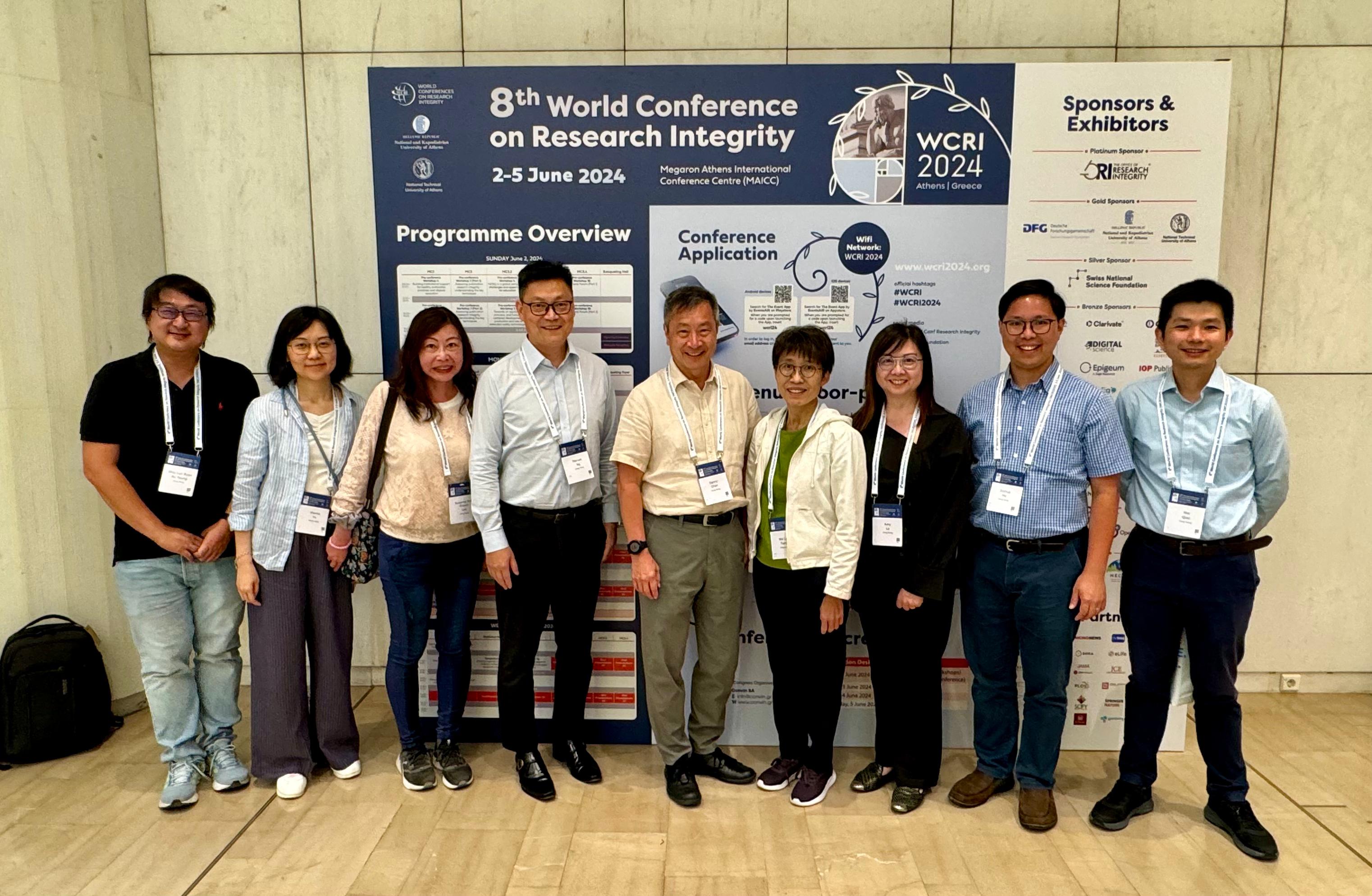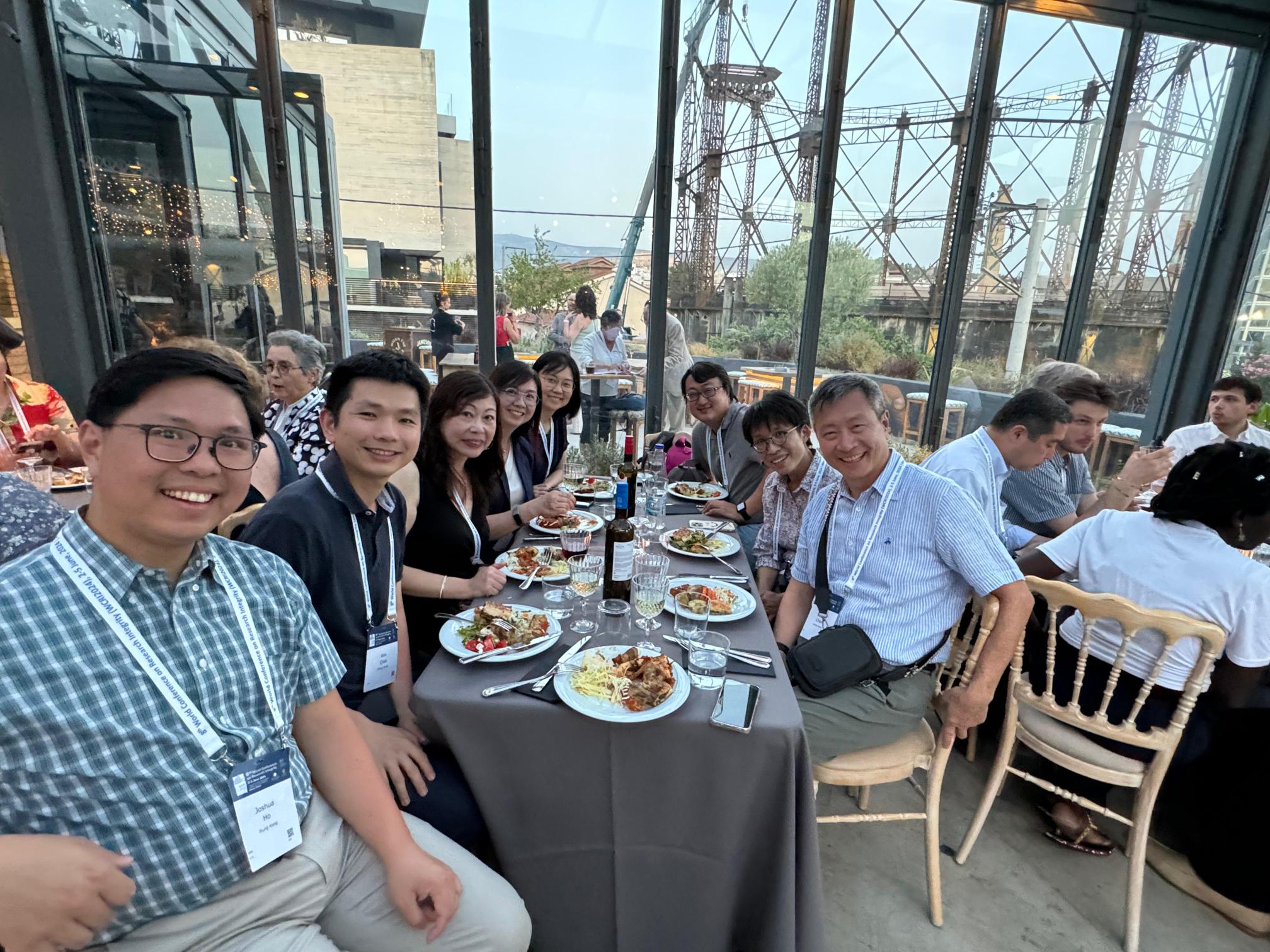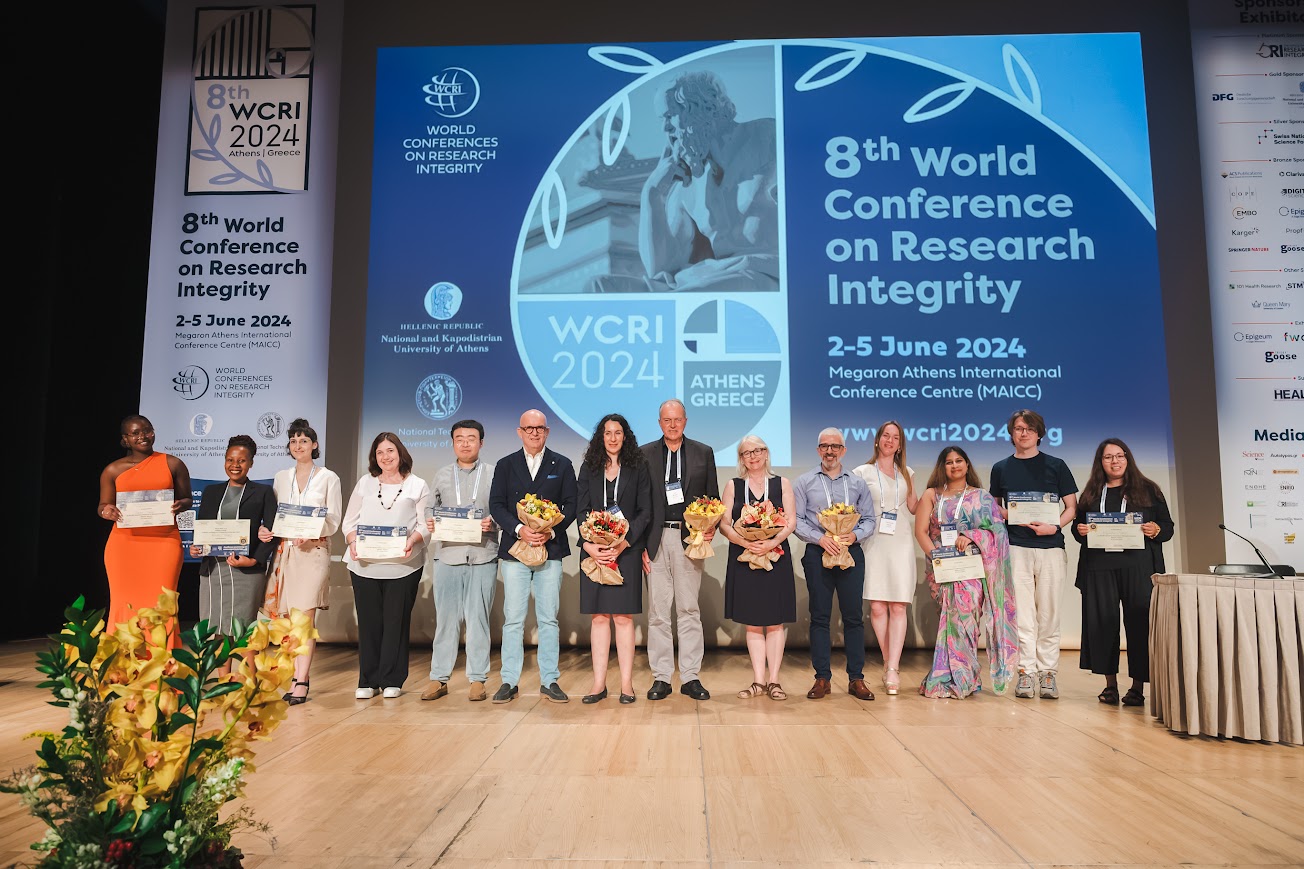

{{'Newsletter' | t}}
HKU Delegates Explored the Developments and Challenges Around AI and Research Integrity at the 8th World Conference on Research Integrity

May Shwen Suzanne Lee (second from left) and Xinqu Zhang (fourth from left) joined Professor Danny Chan, Chair of the Research Integrity Sub-committee,
and other HKU staff at the WCRI 2024.
Two HKU PhD students, May Shwen Suzanne Lee and Xinqu Zhang, attended the 8th World Conference on Research Integrity (WCRI) held in early June 2024 in Athens, Greece. The conference presented two Excellence in Doctoral Research Awards, Xinqu was selected for one of the awards in recognition of the quality of his research and his contributions to the Doctoral Forum.
The WCRI 2024 covered not only the strategies to strengthen research integrity but also the key threats to it, including the risks and opportunities associated with generative artificial intelligence, the rising rate of detected research fraud and retractions of publications, and the issue of fake publications.
The WCRI is the largest and most significant international conference on research integrity and responsible conduct of research. The biennial conference provides a unique opportunity for PhD students doing research on research integrity topics to interact and to get advice and comments from an international panel of experts in the field with a strong methodological background. Below, the attending students share their learning experiences and takeaways from the conference.

Ms May Shwen Suzanne Lee (PhD student, Faculty of Education): I am honoured to be one of the two PhD students to be selected to attend the 8th World Conference of Research Integrity in Athens, Greece from 2–5 June, 2024, together with a delegation of professors and Research Services staff. It was an eye-opening and enriching experience as it was my first time attending an international conference. It was exciting to present my poster on “Ensuring the Research Integrity of Systematic Reviews”, where I gained fresh insights from talking to researchers, publishers, and industry leaders. I am glad that many of them expressed appreciation to me for laying out the steps clearly on how to ensure the research integrity of systematic reviews, which would help them to carry out their own systematic reviews.
I gained a broad perspective about research integrity on improving fairness and equity, increasing diversity and inclusivity, and encouraging fair practice in research. For example, I learned that the goal of reproducibility of research is to reuse and reduce waste. Preregistration increases reproducibility by reducing questionable research practices and improving transparency. I had emphasised the importance of preregistration in systematic reviews in my poster presentation. I also learned that the research culture impacts researchers’ motivation. As an implementation strategy for the adoption of preregistration among researchers, we can make it rewarding through recognition and rewards, make it possible by providing tools and infrastructure, make it easy through education and skills, make it normative through community pressure, and make it evident through having the professors as our role models.
During the opening plenary session, it was noted that the relentless drive for research excellence has created a culture in modern science that cares exclusively about what is achieved and not about how it is achieved. This stifles diverse thinking and positive behaviours. One presenter in a symposium also argued that researchers should be recognised not by the number of publications but by the number of citations. I sincerely hope that universities worldwide would heed the call of researchers at this conference to reward the quality of research instead of the intensity of research. I believe that this would facilitate the adoption of research integrity among researchers.

Mr Xinqu Zhang (PhD student, Department of Sociology): This is my first time participating in conferences about research integrity, which closely connects to my thesis. Here, in the pre-conference workshop, I gave a presentation to examine the causes of research misconduct from different theoretical angles from various social science perspectives, and it was rewarded with the “Excellence in Doctoral Research Award” by the conference committee. This is a significant honour for me. Besides, I also gave a poster presentation related to my thesis at this conference. These experiences taught me how to present my studies effectively, and other scholars have provided valuable comments and suggestions.
I have attended several presentations and symposiums at this conference to learn about current research progress in academic integrity, particularly about AI, paper mills, and research methodologies. From other conference participants, I have gained knowledge that keeping research integrity is a recognised challenge in contemporary academic realms because, along with technological developments (e.g., the use of AI), the efficiency of producing knowledge (e.g., publishing papers) is increasing, and the current regulation strategies for research misconduct are relatively left behind. Meanwhile, because competition for acquiring positions in higher education and research institutions is continually intensified, and university governance strategies (e.g., the policy of ‘publish or perish’) worsen the situation, some researchers may try to find ‘shortcuts’ to survive. All these emphasise the importance of adjusting existing policies to respond to the challenge. In short, the conference connected scholars from different areas to work on improving research integrities. This experience has motivated me to proactively contribute to ensuring and promoting ethical practices in academic research.

HKU members attending the 8th World Conference on Research Integrity in June 2024 in Athens, Greece.

May Shwen Suzanne Lee presenting her poster at the WCRI 2024.

Enjoying Greece!

Xinqu Zhang receiving the Excellence in Doctoral Research Awards at the WCRI 2024.
